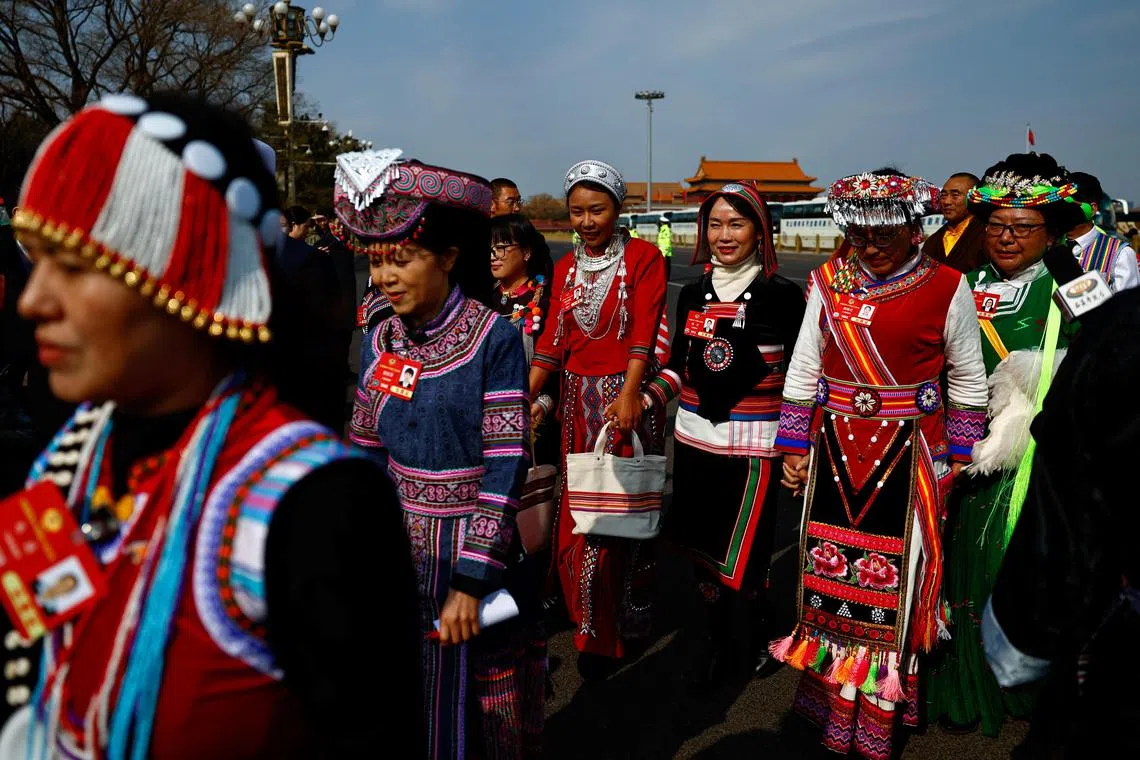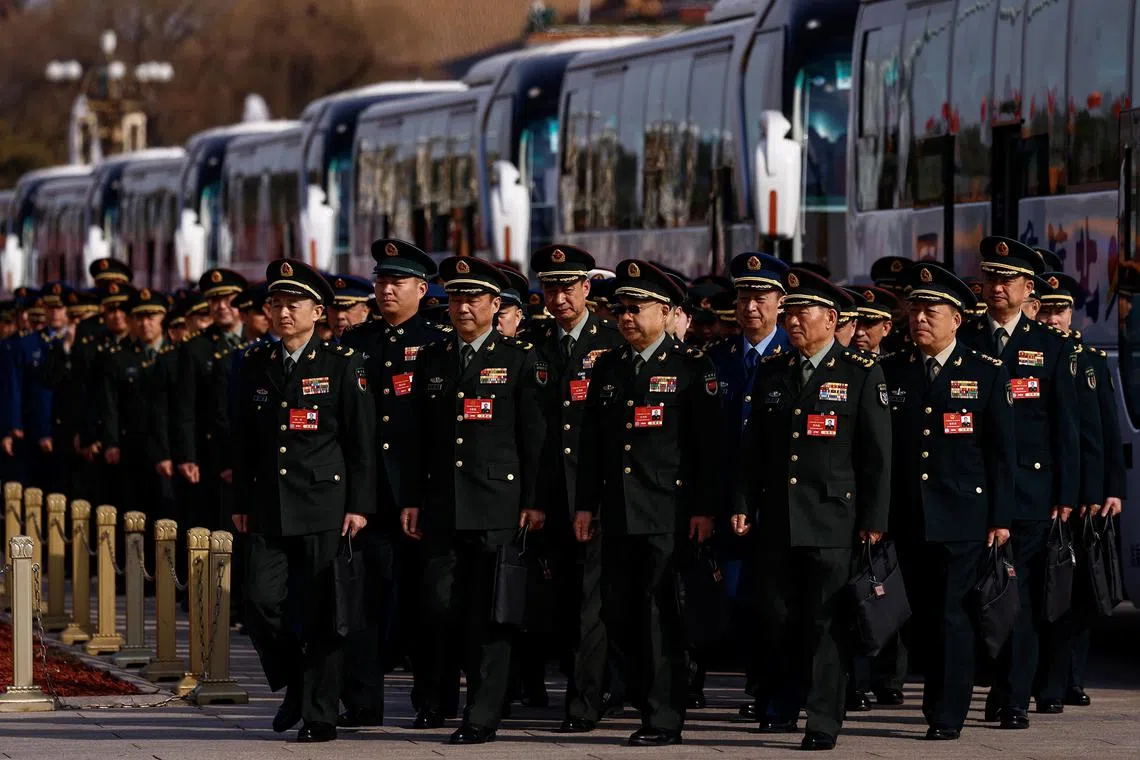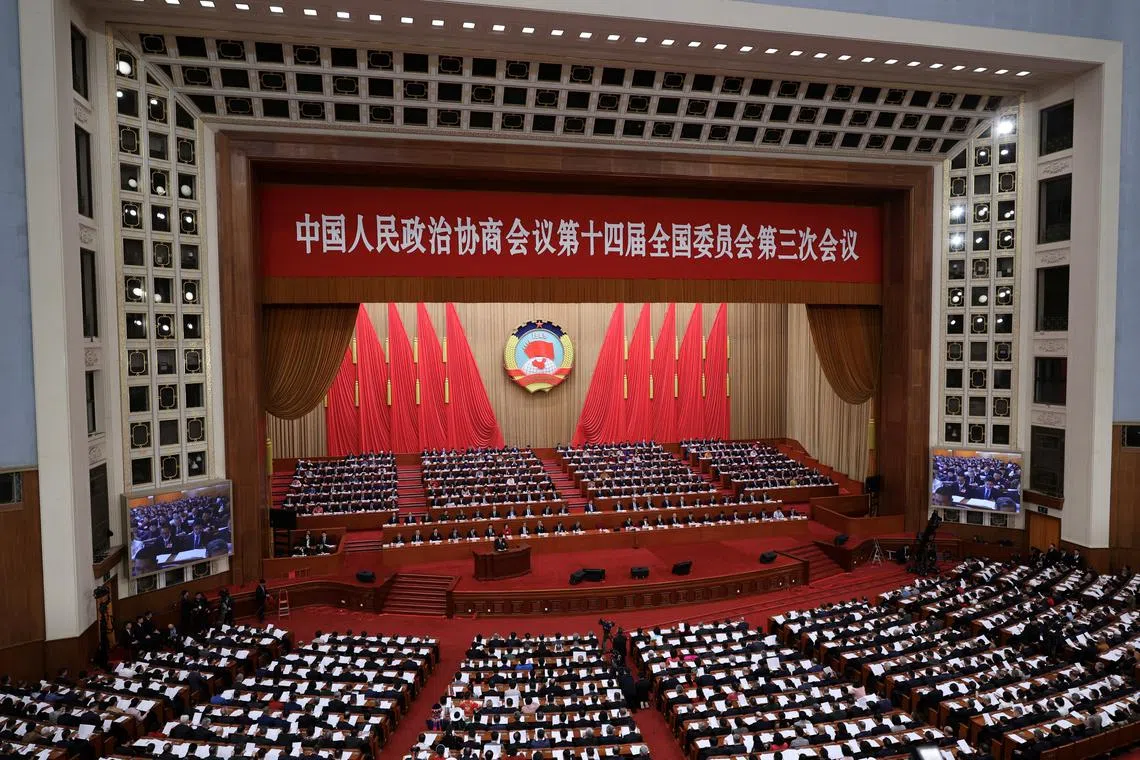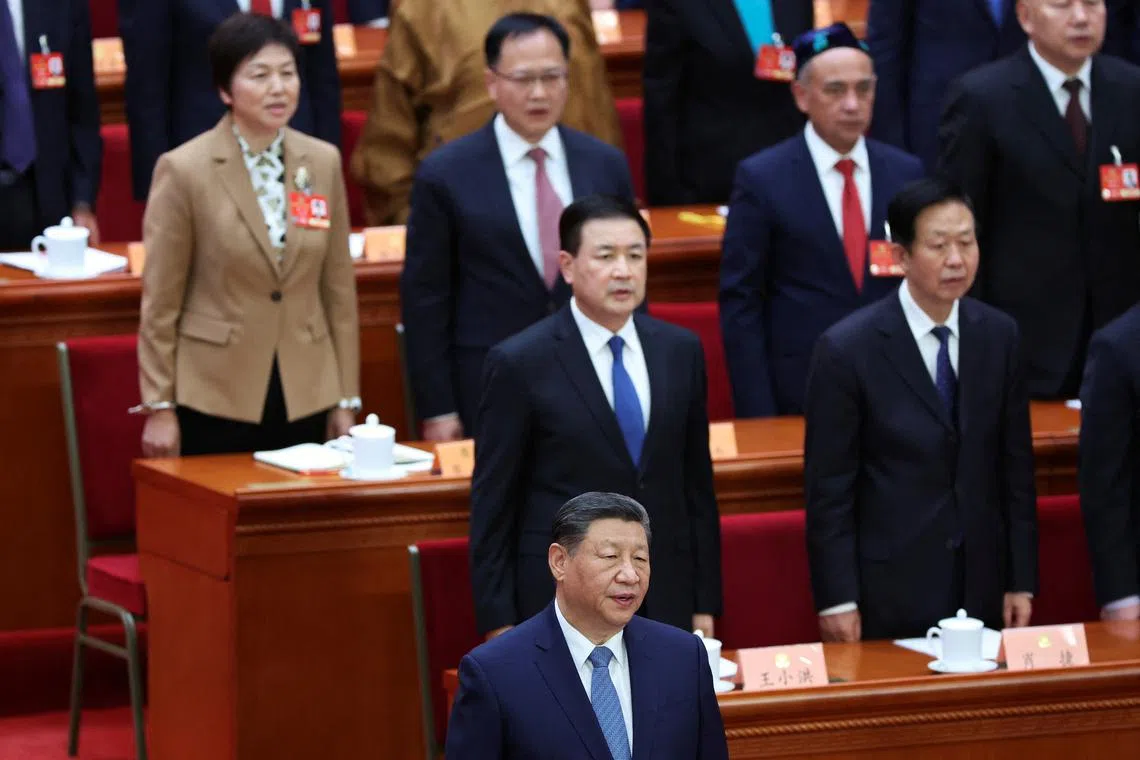China’s elite don traditional garb for annual ‘Two Sessions’ talking shop
Sign up now: Get insights on Asia's fast-moving developments

Delegates arriving for the opening session of the Chinese People's Political Consultative Conference in Beijing on March 4.
PHOTO: REUTERS
BEIJING - Sporting military uniforms and multicoloured traditional garb, delegates from all four corners of China descended on the capital on March 4 for the country’s largest annual political event – a red-carpet cameo for the ruling elite.
China’s “Two Sessions” kick off this week,
Security was tight around Beijing, with plainclothes police officers and elderly volunteers in red armbands monitoring for anything that could spoil the conclave.
On nearby Chang’an Avenue, cars trudged along in traffic and pedestrians were stopped for security checks.
Many delegates sported the typical dark suit and tie of career Communist officials.
But that was punctuated with the occasional pop of colour and traditional dress from representatives of China’s 55 officially recognised minority groups.
Ms Yang Xiaohua, a delegate from south-western Yunnan province, was wearing the intricately embroidered dress of her Naxi minority group as she arrived in the stately Great Hall of the People for her third year.
A delegate to the Chinese People’s Political Consultative Conference (CPPCC), the middle school teacher said she planned to propose education-related policies.
She said she thought the ruling Communist Party was giving “more and more weight” to delegates’ opinions.
“There are surprises every time,” she told AFP. “I think there’s not much to say about China’s overall direction, we are very satisfied.
“Life has got better and better for ethnic minorities, so we hope the country will prosper and flourish, so that people can work and exist in peace.”
Handfuls of representatives dressed in dark green uniforms of China’s military brushed past journalists in the Great Hall.

Military delegates arriving for a meeting in Beijing on March 4, a day before the National People’s Congress started.
PHOTO: REUTERS
But other delegates were more keen to chat as they made their way to the assembly room.
Ms Wu Haiying, of north-eastern Jilin province, said she hoped to work with the party to provide women with a better “childbearing environment”.
But she acknowledged the country was facing difficulties – particularly in the economy.
“But even so, in the process of national development and progress, we will still experience challenges - in economic development, individual development, career development,” she said.
Attending the two sessions as a CPPCC representative for a third year, Ms Wu said “the feeling of seeing old friends is very good”.
Outside the theatre-like assembly room was an elaborate floral display in different shades of pink, with pots around the hall.

Delegates at the opening session of the CPPCC in the Great Hall of the People, in Beijing, on March 4.
PHOTO: PREUTERS
Optimistic delegates
Inside, delegates including President Xi Jinping and his top brass stood to sing a rendition of China’s national anthem.
The March 4 CPPCC was low-stakes compared with the almost simultaneous gathering of China’s legislature, the National People’s Congress (NPC), which starts on March 5.
That meeting is widely expected to see Beijing hash out plans for a response to the many economic headwinds China is facing, from trade war threats abroad to sluggish consumption and a proper crisis at home.

Chinese President Xi Jinping singing a rendition of China’s national anthem at the opening session of the CPPCC.
PHOTO: REUTERS
Delegates, unsurprisingly, put on an optimistic face when asked for comment by journalists.
“I believe that in dealing with global and domestic economic development, China’s economy will escape this puzzle,” Mr Ruan Hongxian, from south-western Yunnan province, told AFP.
“And I believe that China’s economy will be even better developed in the future.” AFP


